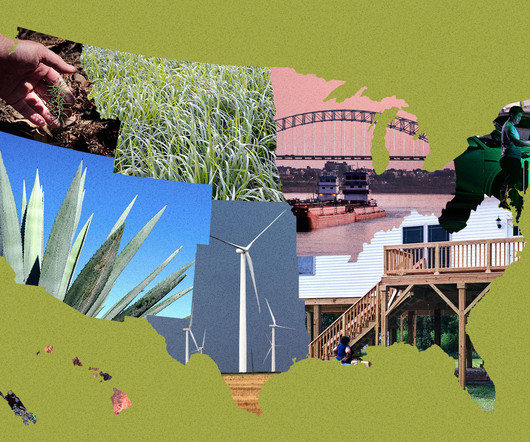Ocean-based sequestration heats ups
GreenBiz
FEBRUARY 1, 2021
"Once it goes down below 1,000 meters, it’s not coming back up, because the pressures are so great," Odlin told Fast Company. "So Once it goes down below 1,000 meters, it’s not coming back up, because the pressures are so great. Once it goes down below 1,000 meters, it’s not coming back up, because the pressures are so great.
















Let's personalize your content